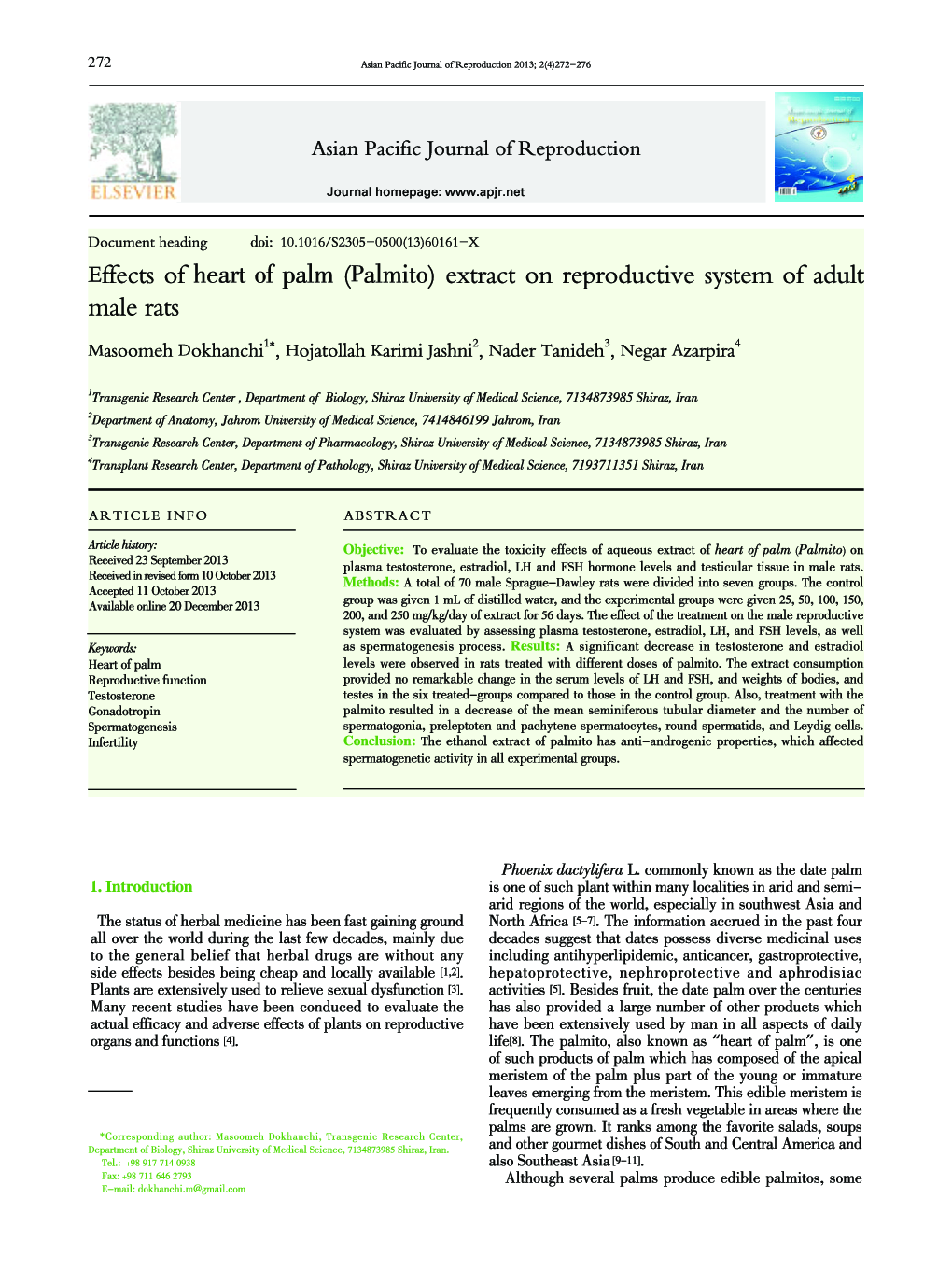| Article ID | Journal | Published Year | Pages | File Type |
|---|---|---|---|---|
| 3453535 | Asian Pacific Journal of Reproduction | 2013 | 5 Pages |
ObjectiveTo evaluate the toxicity effects of aqueous extract of heart of palm (Palmito) on plasma testosterone, estradiol, LH and FSH hormone levels and testicular tissue in male rats.MethodsA total of 70 male Sprague-Dawley rats were divided into seven groups. The control group was given 1 mL of distilled water, and the experimental groups were given 25, 50, 100, 150, 200, and 250 mg/kg/day of extract for 56 days. The effect of the treatment on the male reproductive system was evaluated by assessing plasma testosterone, estradiol, LH, and FSH levels, as well as spermatogenesis process.ResultsA significant decrease in testosterone and estradiol levels were observed in rats treated with different doses of palmito. The extract consumption provided no remarkable change in the serum levels of LH and FSH, and weights of bodies, and testes in the six treated-groups compared to those in the control group. Also, treatment with the palmito resulted in a decrease of the mean seminiferous tubular diameter and the number of spermatogonia, preleptoten and pachytene spermatocytes, round spermatids, and Leydig cells.ConclusionThe ethanol extract of palmito has anti-androgenic properties, which affected spermatogenetic activity in all experimental groups.
